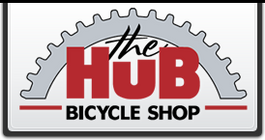
Pressed on On Bicycle Hub Flanges
Pressed on bicycle wheel hub flanges can be unsafe because they are not as strong as machined hubs, especially when subjected to the forces generated during braking and cornering.
When a bicycle wheel is under load, the hub flanges experience a significant amount of stress, which can cause the flanges to bend or deform over time. This bending can result in a loss of spoke tension, leading to wheel instability and even failure.
In contrast, machined hubs are created by removing material from a solid block of metal, resulting in a stronger and more durable hub. Machining also allows for more precise tolerances and consistent manufacturing, leading to a more reliable and safer hub.
Additionally, machined hubs often have larger flanges, which provide a stronger and stiffer base for the spokes to attach to. This helps distribute the load more evenly across the wheel, reducing the stress on any one part of the hub.
In conclusion, while pressed bicycle wheel hub flanges may be cheaper to manufacture, they can compromise the safety and reliability of the wheel, especially under heavy braking or cornering. Machined hubs are stronger and more reliable, and therefore a better choice for high-performance or heavy-duty cycling applications.



